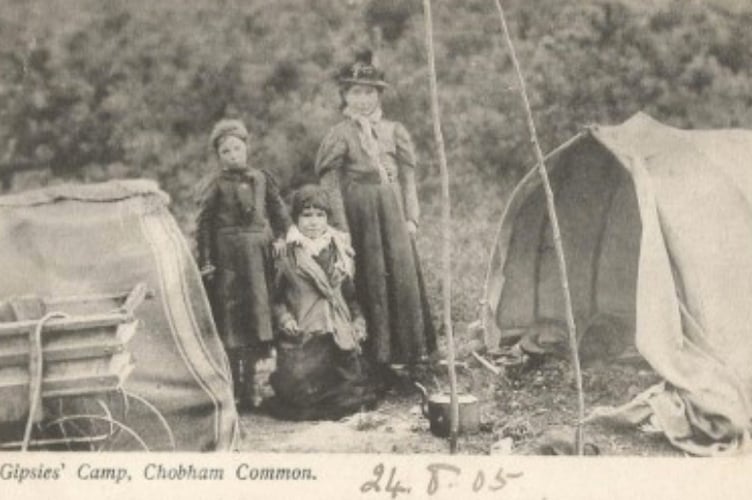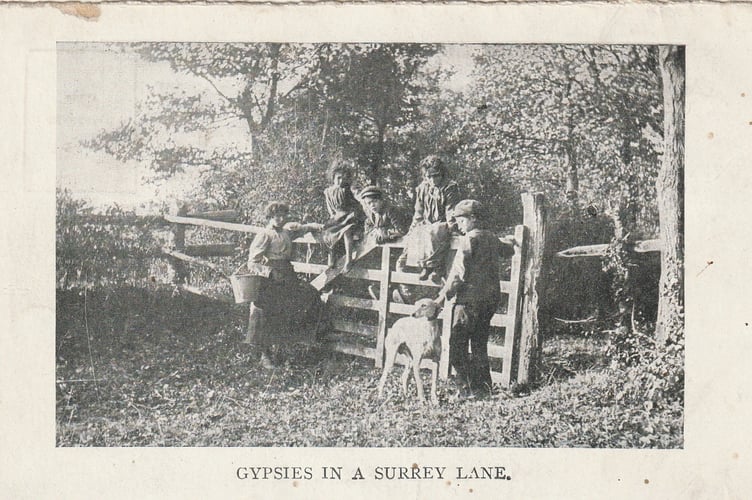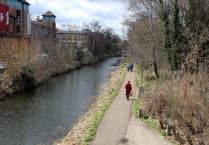FOR twelve years Stanley Alder visited Gypsies and travellers at their camps around Chobham and West End, giving them much-needed help while spreading the gospel.
This was between 1881 and 1892. Alder was a teacher at Bisley’s Farm and Shaftsbury Schools, for poor, homeless and orphaned children. In 1893, he published a book, Work Among The Gipsies, containing the yearly reports he had written.
They reveal the extremely hard conditions the Gypsies endured, with most of them living in tents. Alder wrote how food was distributed to them, how he encouraged them to move into slightly better dwellings and the bible classes they were invited to. He also mentions some of the Gypsies’ own stories and hardships.
Alder’s writings make fascinating reading, here are extracts of some of them.

Recalling December 1881, Alder included: “The [bible] meetings were well attended. The sad poverty among these poor people during the winter months is most distressing, and necessitated the giving of some cocoa and bread and butter after the week evening meetings, and soup during the severe frost. A Christmas dinner of roast beef and plum pudding was given to 43 of the people and their children.”
Keen to encourage the families to become part of the settled community, Alder noted: “We encouraged these people to seek and gain an honest livelihood by work, to be thrifty in their habits, and for the sake of their children to leave their present wandering life, and settle down and seek continuous employment.
“We urged them to give up begging, and warned them against stealing and trespassing. Both in their tents and in the cottage of Mrs Harrison, where we met them in the week, they ever showed gratitude for what was done for them.”
Reporting his work in 1882, Alder wrote: “We have been encouraged from the fact that two families have followed our advice and adopted cottage life, one a family of nine and the other of six.”
There was a group of two-room cottages with a scullery at Sparrow Row on the outskirts of Chobham and these were home to Gypsy families. Of those two families who each moved into a cottage, Alder added: “The children have now been to school [for] nine months.”
.jpg?width=752&height=500&crop=752:500)
And of one family he wrote: “… their children can be seen neat, clean and happy at Trinity School [West End]. The husband of the large family is getting a good connection as a chimney sweeper. The husband of another family has constant work on a farm.”
The chimney sweep was James Baker, who Alder also wrote about: “He now has eight children and a fair connection in business, and drives his pony and trap on long rounds. This man who is fond of music and plays a fiddle, may be heard in his own cottage leading his children in singing Sankey’s known hymns, aforetime he only delighted in playing the coarsest of songs and tunes.”
In 1887, money was given by Chobham’s Jubilee Committee for the Gypsy families to enjoy a “Jubilee Breakfast and Dinner” in honour of Queen Victoria’s 50 years on the throne. At about the same time a man and a woman from one family said they would like to be legally married.
This was arranged with the Revd Herbert Acworth of St Lawrence Church, Chobham. With two shillings left over from the jubilee fund, a gold ring was bought for the couple and the ceremony took place on 1 October that year.
Another story of the Gypsies helping one another Alder recalled from his notes from 1887: “One of the mothers was taken ill and their donkey was dead. The man in the next tent to them put the woman in the cart, and took the place of the donkey in drawing the poor woman to Chobham to the doctor’s and back again.”
More next week about Stanley Alder’s writings and what happened to James Baker.



-(3).jpg?width=209&height=140&crop=209:145,smart&quality=75)

-(3).jpg?width=209&height=140&crop=209:145,smart&quality=75)